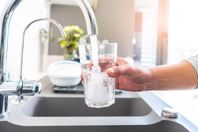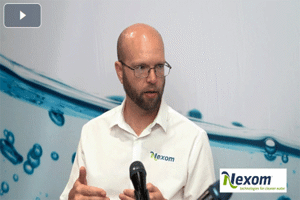WATER REUSE RESOURCES
-
Every drop of water counts, but when we talk about our collective conservation efforts for the greater good, it’s natural to think about high-volume users. Those users are generally on the industrial side of things — agriculture, of course; the energy industry, with its intractable relationship to water; and also the food and beverage industry. Thankfully, there are leaders in these spaces who not only understand the need for sustainable water management — they pioneer it.
-
In several U.S. states, government agencies and utilities are exploring how to treat wastewater properly so it can be used for drinking water — what we know as potable water reuse. While potable reuse is not a new concept, it's being pursued more aggressively with renewed support and new ideas as we see limits with existing water sources.
-
My water career started with beer. No, not the amount I drank on my way to my chemical engineering degree at Manhattan College. I mean the 10,000+ hours I spent optimizing filtration systems in breweries throughout the world.
-
What do the semiconductor, food and beverage, petrochemical, and power generation industries have in common? They all rely on water to produce — an increasingly scarce resource.
-
Though treatment processes can guarantee that water has been completely purified — to the point where it is just as safe as regular tap water — people still feel it could cause them harm. We have to remember, however, that people's beliefs can change.
-
A lot can go wrong in a large urban water system. Pumps malfunction. Valves break. Pipes leak. Even when the system is functioning properly, water can sit in pipes for long periods of time. Water shortages are also a growing problem in a warming world, as communities across the Southwestern U.S. and in many developing nations are discovering. That's why cities have started experimenting with small-scale alternatives — including wastewater recycling and localized water treatment strategies known as decentralized or distributed systems.
-
During World Water Week, participants from every corner of the world are meeting to discuss solutions to the planet's greatest water challenges, such as poverty, the climate crisis, and biodiversity loss. This year's focus is on innovation at a time of unprecedented challenges.
-
The pervasive and increasing incidence of water stress could perhaps be the most clear-cut consequence of climate change. As weather patterns become increasingly erratic and destructive, floods and drought are continuing to deplete water resources. We're no longer seeing predictable rainy and dry seasons to balance water tables. Couple this with growing and migrating populations that create an ever-increasing water demand, and the result is the undeniable water stress we're seeing globally.
-
With the great need to get water back into circulation to satisfy high demand, managed aquifer recharge (MAR) via decentralized wastewater treatment is proving to be an effective solution.
-
By leveraging natural surroundings, Xylem’s manufacturing facility in Emmaboda, Sweden, can recycle 100% of the plant’s process wastewater with its new water treatment. The plant helps ensure a continuous supply of safe water, even in times of water scarcity, using Xylem’s water reuse technologies.











